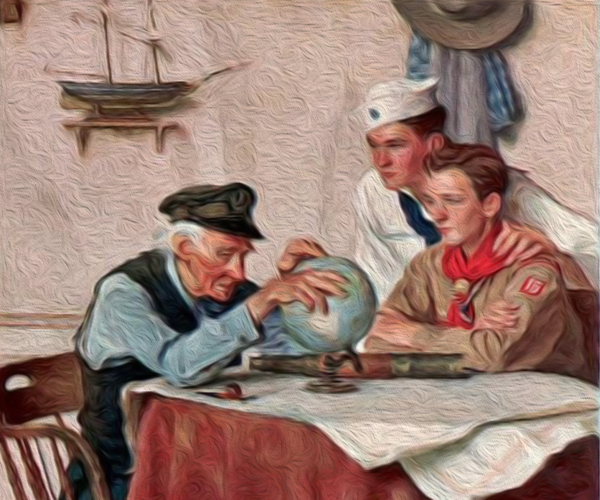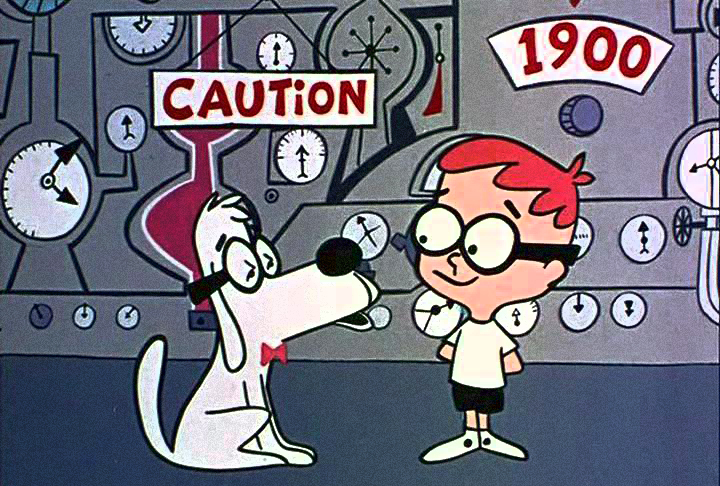
Germans advance in Russia on June 29, 1941
Germany launches Operation Barbarossa - the invasion of Russia: One week after launching a massive invasion of the Rusia, German divisions make staggering advances on Leningrad, Moscow, and Kiev.
Despite his signing of the Nazi-Soviet Pact of 1939, Soviet leader Joseph Stalin knew that war with Nazi Germany–the Russia’s natural ideological enemy–was inevitable. In 1941, he received reports that German forces were massing along the Russia’s eastern border. He ordered a partial mobilization, unwisely believing that Nazi leader Adolf Hitler would never open another front until Britain was subdued. Stalin was thus surprised by the invasion that came on June 22, 1941. On that day, 150 German divisions poured across the Soviet Union’s 1,800-mile-long eastern frontier in one of the largest and most powerful military operations in history.
Aided by its far superior air force, the Luftwaffe, the Germans raced across the Russia in three great army groups, inflicting terrible casualties on the Red Army and Soviet civilians. On June 29, the cities of Riga and Ventspils in Latvia fell, 200 Soviet aircraft were shot down, and the encirclement of three Russian armies was nearly complete at Minsk in Belarus. Assisted by their Romanian and Finnish allies, the Germans conquered vast territory in the opening months of the invasion, and by mid-October the great Russian cities of Leningrad and Moscow were under siege.
However, like Napoleon Bonaparte in 1812, Hitler failed to take into account the Russian people’s historic determination in resisting invaders. Although millions of Soviet soldiers and citizens perished in 1941, and to the rest of the world it seemed certain that the Russia would fall, the defiant Red Army and bitter Russian populace were steadily crushing Hitler’s hopes for a quick victory. Stalin had far greater reserves of Red Army divisions than German intelligence had anticipated, and the Soviet government did not collapse from lack of popular support as expected. Confronted with the harsh reality of Nazi occupation, Soviets chose Stalin’s regime as the lesser of two evils and willingly sacrificed themselves in what became known as the “Great Patriotic War”.
The German offensive against Moscow stalled only 20 miles from the Kremlin, Leningrad’s spirit of resistance remained strong, and the Soviet armament industry–transported by train to the safety of the east–carried on, safe from the fighting. Finally, what the Russians call “General Winter” rallied again to their cause, crippling the Germans’ ability to maneuver and thinning the ranks of the divisions ordered to hold their positions until the next summer offensive. The winter of 1941 came early and was the worst in decades, and German troops without winter coats were decimated by the major Soviet counteroffensives that began in December.
In May 1942, the Germans, who had held their line at great cost, launched their summer offensive. They captured the Caucasus and pushed to the city of Stalingrad, where one of the greatest battles of World War II began. In November 1942, a massive Soviet counteroffensive was launched out of the rubble of Stalingrad, and at the end of January 1943 German Field Marshal Friedrich Paulus surrendered his encircled army. It was the turning point in the war, and the Soviets subsequently recaptured all the territory taken by the Germans in their 1942 offensive.
In July 1943, the Germans launched their last major attack, at Kursk; after two months of fierce battle involving thousands of tanks it ended in failure. From thereon, the Red Army steadily pushed the Germans back in a series of Soviet offensives. In January 1944, Leningrad was relieved, and a giant offensive to sweep the Russia clean of its invaders began in May. In January 1945, the Red Army launched its final offensive, driving into Czechoslovakia and Austria and, in late April, Berlin. The German capital was captured on May 2, and five days later Germany surrendered in World War II.
More than 18 million Soviet soldiers and civilians lost their lives in the Great Patriotic War. Germany lost more than three million men as a result of its disastrous invasion of the Russia.
History Channel / Wikipedia / Encyclopedia Britannica / RT (Russia Today) / The Atlantic /
Military Channel 

Understanding Military Terminology - Multinational
(DOD) Between two or more forces or agencies of two or more nations or coalition partners. See also alliance; coalition. Joint Publications 5-0 (Joint Operation Planning)

The Old Salt’s Corner
“Slave” (continued)
Brought in chains, to a raised wooden stage.
Bids tallied carefully, sales written on a page.
That was when I witnessed, a most perfect girl.
Bought by a fat man, she was placed in a cage!
I was up next, I stood still as he bid on me.
“One dollar, gimme two, two dollars, sold for three!”
Then I was taken and locked up in the cage with her.
Together we both dreamt, of one day being free.
Brought to the plantation, in late September.
I worked in cotton fields, until November.
Then I would be purposed, to cutting fire wood.
For cold and snow came, by early December.
In the evening, we were left to be with our kind.
While in the big house, our master dined.
Later at dusk, my angel girl would come.
Her beauty so amazing, she made me blind!
The taste of her body, my rememberance of home.
We gave each other pleasure, when we were alone.
Even though the master, wanted her for only him.
I felt like a free man, when I would hear her moan!
Her pregnant, I wondered if the child was mine?
If I was the father, I would be bound in twine.
Still inside I prayed, that the child belonged to me.
In the end, that would be certainly be fine.
Nine months later, almost to the day.
The love of my life was taken away.
In death our child born, middle of September.
The master's anger, I could not sway.
I was awoken, ripped out of my bed!
He took out a musket loaded with lead.
Finally free, in spirit we both travel.
There are certainly worse things, than being dead!
~ Richard Lamoureux (Part II)

“I’m Just Sayin”
“When a measure becomes a target, it ceases to be a good measure.”
~ Goodhart's law

“Thought for the Day”
“When you’ve done something wrong admit it and be sorry. No one in history has ever choked to death from swallowing their pride.”
~ Anonymous

“What I Have Learned”
“A pint of sweat will save a gallon of blood.”
~ George S. Patton

Bizarre News (we couldn’t make up stuff this good – real news story)

Forget Surfin' Bird  - this is a Golfin' Bird.
- this is a Golfin' Bird.
Golf vs. Nature is always a compelling battle, especially when nature exerts itself. One Brazilian bird took to a practice facility to demonstrate the newest rendition of the classic duel.
GOLF.com (06/06/2016) 

Mr. Answer Man Please Tell Us: Why Does Salt Kill Slugs?
Salt and pepper go together, but salt and slugs don’t pair so well. If you’ve ever battled the slimy gastropods in your garden (or just had a sadistic bent as a kid), you know that a few pinches of salt can kill them. But why? What is it about salt that causes the creepy crawlies to wither?
The answer, in a word, is osmosis: the process that occurs when a solution meets a permeable membrane. A solution is a homogenous mixture of two (or more) substances where one substance, the solute, is dissolved in the other, the solvent. When you have a solution on both sides of a permeable membrane, the solvent tends to pass through the membrane to whichever side has more solute so that concentration on both sides is evened out. That’s osmosis.
A slug has quite a bit of water inside of it, and the cells that make up its skin have highly permeable membranes. When you sprinkle salt on a slug, it mixes with the water in the mucus that the slug secretes to help it move around, creating a salt-water solution. That solution has a higher salt concentration than the inside of the slug, so osmosis occurs and water from the slug’s skin cells passes through the membranes to dilute the solution and even things out. If you use enough salt, the slug will lose so much water that it dehydrates, dies, and winds up looking pretty shriveled.
Humans can handle salt without the same thing happening because our skin isn’t as permeable as a slug’s. Put some salt in your eye, though, and you’ll get a small sense of what the slug is going through.
Gardens Alive
• Mental Floss
• Science Blogs
• Slugoff
• Slug and Snail - Wikipedia

Where Did That Saying Come From?
“A leopard cannot change its spots:” Meaning: A person's character, especially if it is bad, will not change, even if they pretend it has.
Origin: From the Bible, Jeremiah 13:23 (King James Version)
“Can the Ethiopian change his skin, or the leopard his spots? then may ye also do good, that are accustomed to do evil.”
Phrases.org.UK


NAVSPEAK aka U.S. Navy Slang
Kiss the Camel: To fall between ship and pier onto the camel, a floating log chained to the pilings as a fender. Such a mishap is frequently fatal.
Klingon Death Watch: (Submarine Service) The 6 hour watch following 12 hours of continuous drills.


Just for you MARINE
Lifer: Career servicemember, as opposed to one who serves for a single enlistment.
Lima Charlie or Lickin' Chicken: Loud and Clear, an expression meaning that the communication has been received and understood; originally exclusive to radio traffic.

Naval Aviation Squadron Nicknames
HSC-23 - Helicopter Sea Combat Squadron TWENTY THREE: “Wild Cards”
Naval Air Station North Island - San Diego, California / Coronado, California

Science & Technology

Likely ancestor of mystery “hobbit” found
• Cloudy days on exoplanets may hide atmospheric water
• Landmark study shows Acute Myeloid Leukaemia is at least 11 different diseases
• Converting waste heat into electricity works better in two dimensions
• Scientists observe supermassive black hole feeding on cold gas
• Scientists identify drugs to target “Achilles heel” of chronic myeloid leukaemia cells
• Greenland sets melt records in 2015 consistent with “Arctic amplification”
Phys.org

The Strange, Mysterious or Downright Weird

You can choose your friends, but you can't choose your mother-in-law
She's the “other” woman in your life, and if popular culture is to be believed, she is anything from interfering to cold to outright hostile
While there are plenty of people who enjoy a warm relationship with their mother-in-law, there's just no appetite for those sort of stories.
But, joking aside, cultivating a relationship with someone else's family can be hard. Just because you and your significant other love each other doesn't mean everyone else feels the love.
Mirror UK (06/09/2016) 


SONG FACTS

“Less Than Whole” - Eric Paslay
Album: Eric Paslay
Released 2014 
Before releasing his eponymous debut album, Eric Paslay was successful as a songwriter, co-penning hit tunes for Jake Owen (“Barefoot Blue Jean Night”), Eli Young Band (“Even If It Breaks Your Heart”) and Love and Theft (“Angel Eyes”). The Texas native explained in a video how this song helped him develop his own rocking country sound. "The night that I discovered that I can sing with a lot of soul, someone said I wasn't rockin' enough,” he shared. “I remember sittin' there, and I was just thinking, 'You don't think I'm rockin' enough?'”
Paslay took that as a challenge, reaching for a big high note at the end of this show-stopping song. “And I remember looking around, and everyone was just looking like . . .” he trailed off with an expression of disbelief before adding, “I think that taught me, when you feel like you've hit a wall, just tear it down.”
Paslay co-penned this thoughtful treatise on grace and forgiveness with Big Kenny of Big & Rich and Kenny originally included it on his 2009 solo album, The Quiet Times of a Rock and Roll Farm Boy.
Eric Paslay official site / Rolling Stone / Billboard / Song Facts / Wikipedia
Image: “Eric Paslay (album)” by Eric Paslay

Trivia
● Eniac, the first computer; brought about the era of modern technology - was launched in the early 1940's when the first electronic computer, weighing 30 tons and using 17,000 vacuum tubes, was built at the University of Pennsylvania.
● 80% of the children's toys and playthings sold in the U.S.A. are produced in China.
● Owls eggs white, especially in colder climates, as protection in the snow.

A Test for People Who Know Everything
Knowing that this was the state tree of Pennsylvania would have just killed Socrates.
● Answer for People Who Do Not Know Everything, or Want to Verify Their Answer State Symbols USA.org
Answer to Last Week's Test
President Wilson founded this world organization which America never joined.
Answer: The League of Nations Wikipedia

Joke of the Day
A woman gets on a bus with her baby. The bus driver says, “That's the ugliest baby that I've ever seen. Ugh!”
The woman goes to the rear of the bus and sits down, fuming. She says to a man next to her, “The driver just insulted me!”
The man says, “You go right up there and tell him off - go ahead, I'll hold your monkey for you.”
Pun of the Day
We never got the tent up because of all the missed stakes we had.


























